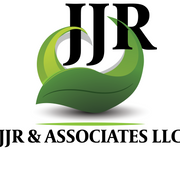3 Steps to Perform a Financial Self-Audit for Your Small Business

For many small business owners, auditing their financials is the last thing they want to do in their spare time. However, it’s an important task that doesn’t solely rely on accounting firms. You have to stay on top of income and expenses to avoid costly oversights and penalties, especially from the IRS. Follow the simple steps below to streamline an informal self-audit.
How to Do a Business Self-Audit
1. Examine Current Cash Flow
Make sure to set aside some time so you can focus more on the details and numbers. Take a look at your cash flow to better track what goes in and out of your business.
When you have revenues on credit, look at the amount and the turnover ratio, which is the number of days it translates to cash. Compare these figures to your expenses, including payments to suppliers, to get an idea of your long-term liquidity outlook.
2. Review All Expenses
 Even the smallest expense can have a significant impact on your financials over time. Review everything that gets charged to the business, such as service contracts, supplier costs, and operational expenses.
Even the smallest expense can have a significant impact on your financials over time. Review everything that gets charged to the business, such as service contracts, supplier costs, and operational expenses.
If you want to know their weight on your financials, calculate them as percentages of your revenue. Assess whether to keep them or look for more reasonable alternatives to manage costs without sacrificing service or product quality.
Sometimes, certain allowable deductions—such as a home office or commercially used car—offer substantial tax benefits to your business. Consult with an accounting firm regarding this matter since they know all the nooks and crannies of the tax system. Keep supporting documents on these items for eligibility as tax credits.
3. Check Income Records
As a business owner, it’s essential to have a separate bank account for all your dealings. It allows you to monitor the revenues—both cash and credit—and expenses through monthly statements.
Most IRS audits perform trend analysis on reported income, so make sure you have everything documented and substantiated to prevent underreporting. Ask an accounting firm about how to reconcile income figures, especially with sales tax and credit card transactions.
After self-auditing your small business, it’s time to work with a professional from JJR & Associates LLC. As one of the most trusted accounting firms in Fayetteville, GA, their business consultants and accountants have provided top-notch services, including bookkeeping and tax help, throughout the Metro Atlanta area. Call (404) 437-7748 to set up an appointment or view their full list of services online.
About the Business
Have a question? Ask the experts!
Send your question

